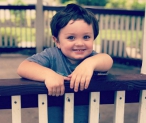Adherence to Recommendations for Follow-up Care for Children Impacted by Cancer

Mentor Name: Lisa Schwartz
Brielle will partner with Dr. Schwartz on research related to adherence to recommendations for follow-up care for youth with a cancer predisposition and adolescents and young adults who survived cancer. Her main project will focus on measuring adherence to recommendations related to cancer surveillance (e.g., follow-up appointments, scans, labs) among youth with a cancer predisposition followed in the Cancer Predisposition Clinic. This is part of an ongoing project funded by NIH (Dr. Schwartz is co-PI with oncologist Suzanne MacFarland) that is evaluating the feasibility, acceptability, and impact of delivering care plans and text messages related to recommendations for living with and managing a cancer predisposition, including specific instructions for cancer surveillance and cancer control behaviors. In order to understand the impact of the intervention on adherence behaviors, Brielle will create the database that records recommendations and adherence to those recommendations. She will then describe the adherence of the sample and related associates as her main research analysis, which will be a novel contribution to this burgeoning field of pediatric cancer predisposition. In another study, she will help develop the components of a digital health (e.g., tailored text messages and care plans) aimed to reduce disparities and enhance engagement in follow-up care and self-management among AYA survivors lost-to-follow-up. Such follow-up care is essential for managing late effects of treatment and monitoring for second cancers, and there are disparities related to who is more likely to remain engaged in follow-up care. Brielle will also help to identify, screen, and recruit potential participants disengaged from follow-up care. Together, these research activities will expose Brielle to a variety of research methods while supporting her interest in behavioral oncology and addressing disparities in access to care.

